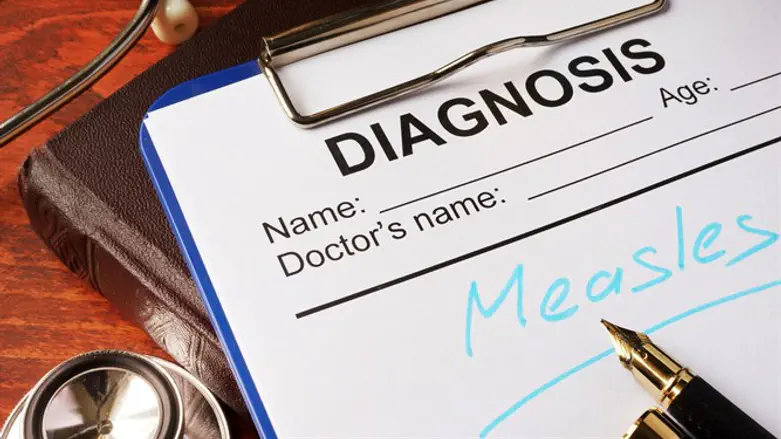
Israel's Health Ministry on Tuesday warned the public to avoid traveling to five countries known for high numbers of measles cases.
"In Israel, measles has affected mostly unvaccinated children (70% of [measles] cases are children)," a warning on the Ministry's site read. "Vaccinating children is therefore a top priority. All children should receive their first dose [of the vaccine] at the age of twelve months and a second dose in first grade. Children who did not receive a vaccination yet should be vaccinated as soon as possible."
The Ministry also noted that over 85% of adults are immune to measles due to having received the vaccination or having suffered the illness. Vaccination of adults, therefore, is less of a priority.
"Passengers traveling to one of the following countries are asked to take special care to receive a vaccination before traveling to these destinations: Ukraine, Georgia, Madagascar, Albania, Liberia.
"According to the World Health Organization (WHO) these five countries have the highest rates of measles. Therefore, the Health Ministry recommends that those planning to travel to these countries reconsider whether the trip is absolutely necessary."
Adults born after 1957 must ensure that they received both doses of the MMR (measles, mumps, rubella) vaccine.
As of the end of April 2019, the number of measles cases in Israel had jumped to 3,964 cases. However, by May 8 - less than a month later - the number of cases had risen to 4,115, for an average of over 9 new measles cases each day.
Measles can cause encephalitis and death. In rare instances, a patient who seems to have recovered from measles will suffer between 7-10 years later from subacute sclerosing panencephalitis (SSPE), a chronic, progressive, and terminal brain inflammation.
